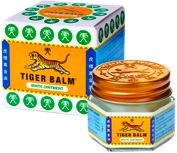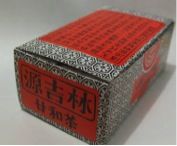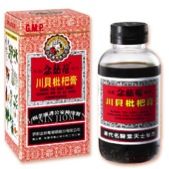Pharmacy finds: 5 local must-buys from Hong Kong drug stores

Drug stores might not be the first place that pops to mind looking for a place to spend your hard-earned money, but they are actually full of traditional faves and hidden goodies you won’t find outside of Hong Kong. Don’t know where to start? Here are five drug-store classics that all locals know and love:
Po Chai Pills 保濟丸
Ask any local on the streets whether they know this brand, and chances are, ten out of ten can sing the catchy jingle of the commercial to you. Developed by a family from Foshan, these tiny red pills are made from a mixture of over 15 Chinese herbs. Supposedly an all-round remedy for digestive problems, the pills offer relief for a medley of symptoms, including indigestion, heartburn, vomiting, diarrhea and bloating. Others have used it as a preventive measure for hangovers.
Tiger Balm 虎標萬金油
A time-proven remedy that sits in almost every home in Hong Kong, Tiger Balm is a small jar of soothing red and white herbal ointment that soothes all manners of aches and pains, from sports injuries to muscle tiredness. The recipe for Tiger Balm originated over 100 years ago, when an herbalist from the Qing Court set up a small pharmacy to sell his unique ointment.
The classic Tiger Balm is still available in most drug stores, but the range has since expanded to include creams, rubs and patches for any lifestyle need.
White Flower Oil 白花油
With over 90 years of history, the White Flower Oil was created as a multi-purpose medicinal oil that can be used to relieve life’s daily irritations, such as blocked noses, motion sickness, bug bites or muscle aches. Concocted from a blend of eucalyptus oil, lavender oil, wintergreen oil and menthol, the White Flower Oil has a very distinctive scent… and you’ll have to decide for yourself whether you love it or not!
Yuen Kut Lam’s Kam Wo Tea 甘和茶
Nicknamed ‘box tea’ by its devotees, the Kam Wo Tea is a herbal tea created by famous Foshan herbalist Yuen Kut Lam. Created as a refreshing summer drink to remove extra ‘heat’ from the body, this tea is now used as a supplement for flus, fevers and indigestion. The tea itself is sweet with a slight bitter aftertaste, making it much more palatable than most Chinese herbal teas!
Nin Jiom Pei Pa Koa京都念慈菴枇杷膏
A thick, sweet and minty paste, the Nin Jiom Pei Pa Koa is often kept in the fridge and brought out for throat-related ailments, like itchiness, sore throats or coughs. The recipe was formulated by a scholar from the Qing Dyansty, who wanted to relieve his doting mother’s throat pains. According to the brand’s history, the mother only drank this paste with water for several years, and her symptoms gradually disappeared.
The paste now comes in various forms, from its original form in the glass bottle to portable sachets and even candy drops.
Karen Chan is a local English copywriter who churns out social posts and taglines for a living. Inspired by her fellow copywriter, she has discovered the joy of working out, and is currently on a quest to live as healthily as her sweet tooth allows. In her spare time, she also loves trying new cafés and restaurants around the city.






